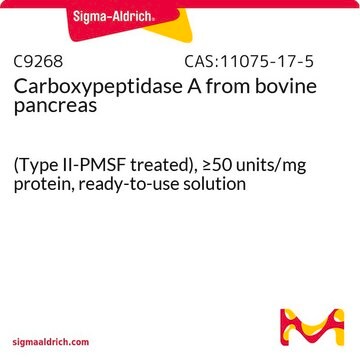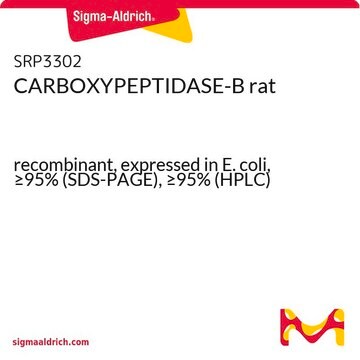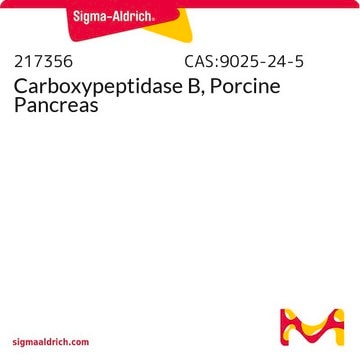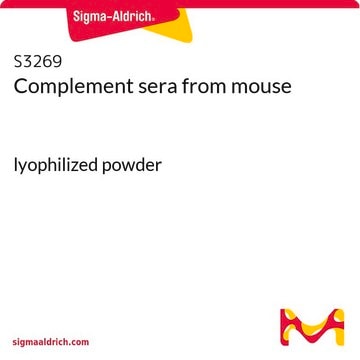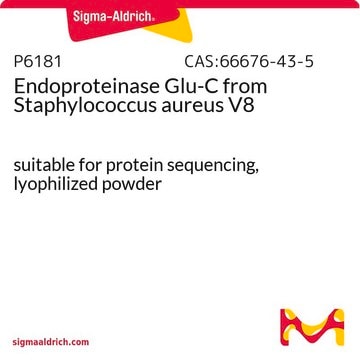C5233
Carboxypeptidase B from human pancreas
50-55 units/mg protein carboxypeptidase B
Synonym(s):
Peptidyl-L-Lysine[L-arginine] hydrolase
About This Item
Recommended Products
biological source
human pancreas
Quality Level
form
solution
specific activity
50-55 units/mg protein carboxypeptidase B
impurities
≤0.2% chymotrypsin
≤0.2% trypsin
≤1 unit/mg protein carboxypeptidase A
UniProt accession no.
shipped in
dry ice
storage temp.
−20°C
InChI
1S/C31H38N4O7S/c1-20(32-26(36)15-16-27(37)38)28(39)33-21(2)30(41)35-17-9-14-25(35)29(40)34-24(18-22-10-5-3-6-11-22)31(42)43-19-23-12-7-4-8-13-23/h3-8,10-13,20-21,24-25H,9,14-19H2,1-2H3,(H,32,36)(H,33,39)(H,34,40)(H,37,38)
InChI key
TWURVFFNODFJBJ-UHFFFAOYSA-N
Gene Information
human ... CPB1(1360)
General description
Application
Biochem/physiol Actions
Unit Definition
Physical form
Storage Class Code
12 - Non Combustible Liquids
WGK
WGK 1
Flash Point(F)
Not applicable
Flash Point(C)
Not applicable
Certificates of Analysis (COA)
Search for Certificates of Analysis (COA) by entering the products Lot/Batch Number. Lot and Batch Numbers can be found on a product’s label following the words ‘Lot’ or ‘Batch’.
Already Own This Product?
Find documentation for the products that you have recently purchased in the Document Library.
Customers Also Viewed
Our team of scientists has experience in all areas of research including Life Science, Material Science, Chemical Synthesis, Chromatography, Analytical and many others.
Contact Technical Service

